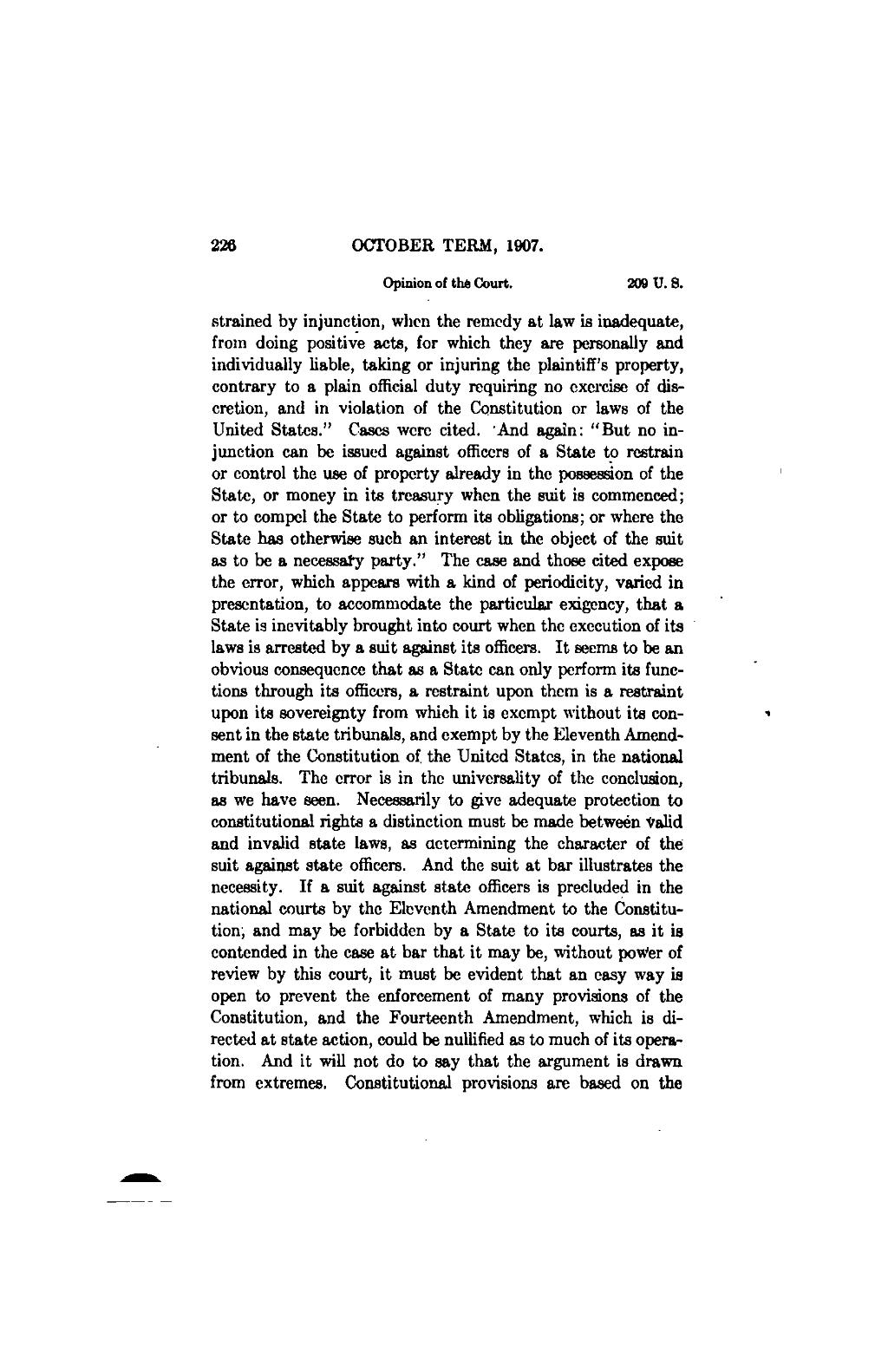OCTOBER TERM, 1907. Opinion of the Court. 209 U. 8. strained by injunction, when the remedy at law is inadequate, frown doing positive acts, for which they are personally and individually liable, taking or injuring the plaintiff's property, contrary to a plain official duty requiring no exercise of dis- cretion, and in violation of the Constitution or laws of the United States." Ca?s were cited. 'And again: "But no in- junction can be issued against officers of a State to restrain or control the use of property already in the posse?on of the State, or money in its treasury when the ?it is commenced; or to compel the State to perform its obligations; or where the State has otherwise such an interest in the object of the suit as to be a neccesalT party." The case and thcee cited expcoe the error, which appea? with & kind of periodicity, varied in presentation, to accommodate the particular exigency, that a State is inevitably brought into court when the execution of its laws is arrested by a suit against its officers. It seems to be an obvious consequence that as a State can only perform its func- tions through its officers, a restraint upon them is a restraint upon its sovereignty from which it is exempt without its con- sent in the state tribunals, and exempt by the Eleventh Amend- ment of the Constitution of the United States, in the national tribunals. The error is in the universality of the conclusion, as we have seen. Necessarily to give adequate protection to constitutional fights a distinction must be made between valid and invalid state laws, as ac?ermining the character of the suit against state officers. And the suit at bar illustrates the necessity. If a suit against state officers is preclude d in the national courts by the Eleventh Amendment to the Constitu- tion? and may be forbidden by a State to its courts, as it is contended in the case at bar that it may be, without power of review by this court, it must be evident that an easy way is open to prevent the enforcement of many provisions of the Constitution, and the Fourteenth Amendment, which is di- rected at state action, could be nullified as to much of its opera- tion. And it will not do to say that the argument is drawn from extremes. Constitutional provisions are based on the
�
